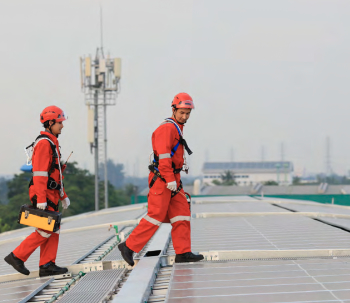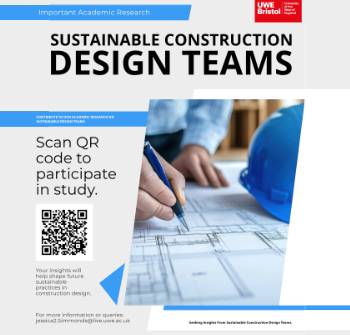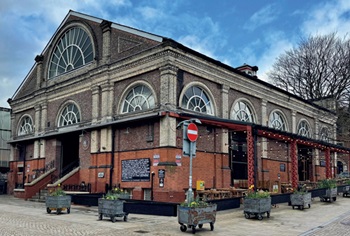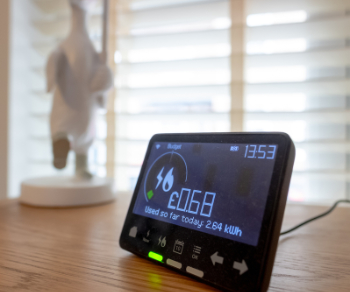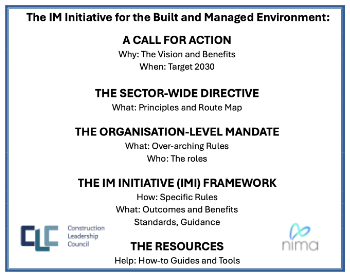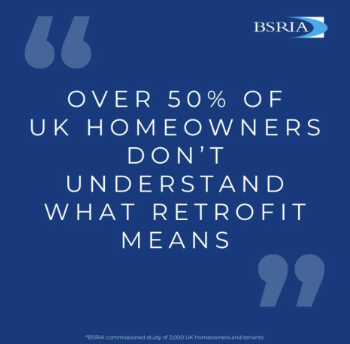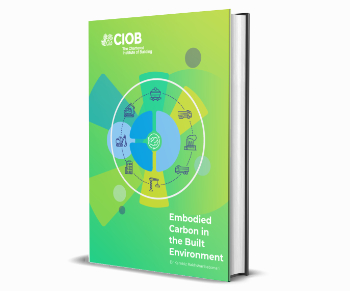Wellbeing and the role of a facility manager
Contents |
[edit] Introduction
To ensure and maintain a ‘well’ workplace, Facility Managers (FMs) can play a vital role. The indoor environment should be a safe place that not only responds to basic human physical needs, but also meets occupants’ psychological needs, enhances their abilities and aids their happiness.
As FMs are trying to optimise energy performance of their buildings, in terms of installed services and building fabric, it is essential for them to also consider how they can help the occupants to better control and spend their human energy.
A ‘well’ workplace is the one that helps the workforce to thrive and happily perform to their optimum ability. To achieve and maintain such an environment, the FMs of a building should formulate a strategy to regularly monitor and evaluate the ‘wellness’ of the building (see Figure 1).
The concept and terminology of wellbeing is not new, however in the last few years we have been witnessing a rapidly-growing interest towards wellbeing. This interest includes understanding and monitoring the factors that can affect occupant wellbeing and productivity in a workplace.
From an organisational management point of view, wellbeing is a major factor in work quality and productivity and, therefore, business success. Poor performing workplaces can affect organisations’ ability to attract and retain the talent they need to succeed. It is, therefore, essential that wellbeing is properly managed in workplaces.
Like anything else, to manage wellbeing in a workplace, it must be measured. This is not an easy task given the intangible nature of wellbeing. It might be argued that assessing wellbeing in a workplace can be tricky and misleading as non-workplace-related life events can also pose threats on individuals’ health.
Although this argument is partly true and sometimes it is impossible to tackle stressful matters at their source, a ‘well’ workplace can act as buffers to the negative effects of those adverse experiences. Existing knowledge also proposes that workplace quality can significantly affect building occupant wellbeing and productivity. In other words, occupant wellbeing can be assessed indirectly by monitoring the different indoor environmental factors of a workplace.
[edit] Physical factors
If building occupants are not physically comfortable they are less likely to be able to concentrate on their tasks and work effectively. This is known as ‘presenteeism’ i.e. when an employee is present at work but cannot perform efficiently. Presenteeism, as well as absenteeism, can cost organisations significantly.
The role of FMs in providing a comfortable indoor environment is broadly recognised. FMs are normally the first point of contact when it comes to issues related to physical comfort as they are usually responsible for managing indoor environmental factors such as:
So, FMs should maintain a physically comfortable environment for the occupants. Providing a platform where the occupants can log/report their wellbeing-related complaints can help the FMs to identify the issues and respond to them faster.
[edit] Functional factors
Another indoor environmental factor that can affect occupant wellbeing is space utilisation. FMs should try to better understand the occupants’ type of work, as well as their company’s strategy and direction to create a space to support the needs.
FMs should collaborate with their HR and ICT teams to ensure their buildings are efficient in terms of occupant density, functionality (fitness for purpose), layout, furniture, ICT, and indoor facilities (e.g. restaurant, shower rooms, meeting rooms with video conferencing facilities, etc.).
In addition to personal workstations, providing designated areas for collaboration, contemplation and formal and informal meetings can significantly contribute towards workplace wellness.
[edit] Psychological factors
Until recently, FMs’ responsibilities were focused on managing HVAC, lighting systems, furniture and other physical factors that affect workplace safety and quality. The FM’s role has now taken on another level. FMs should focus not only on physical factors of buildings but also the psychological experience of people in the workplace.
Many factors in a workplace can influence occupant psychological wellness. Access to nature, for example, is thought to have benefits for wellbeing. Growing evidence suggests that access to nature, outside view and indoor greenery reduces mental fatigue and improves individuals’ ability to deal with stress and other work/life-related issues.
This article was originally published here by BSRIA in March 2017. It was written by Dr. Michelle Agha-Hossein, Sustainable Building Consultant, BSRIA Sustainable Construction Group.
--BSRIA
[edit] Related articles on Designing Buildings Wiki
Featured articles and news
Quality Planning for Micro and Small to Medium Sized Enterprises
A CIOB Academy Technical Information sheet.
A briefing on fall protection systems for designers
A legal requirement and an ethical must.
CIOB Ireland launches manifesto for 2024 General Election
A vision for a sustainable, high-quality built environment that benefits all members of society.
Local leaders gain new powers to support local high streets
High Street Rental Auctions to be introduced from December.
Infrastructure sector posts second gain for October
With a boost for housebuilder and commercial developer contract awards.
Sustainable construction design teams survey
Shaping the Future of Sustainable Design: Your Voice Matters.
COP29; impacts of construction and updates
Amid criticism, open letters and calls for reform.
The properties of conservation rooflights
Things to consider when choosing the right product.
Adapting to meet changing needs.
London Build: A festival of construction
Co-located with the London Build Fire & Security Expo.
Tasked with locating groups of 10,000 homes with opportunity.
Delivering radical reform in the UK energy market
What are the benefits, barriers and underlying principles.
Information Management Initiative IMI
Building sector-transforming capabilities in emerging technologies.
Recent study of UK households reveals chilling home truths
Poor insulation, EPC knowledge and lack of understanding as to what retrofit might offer.
Embodied Carbon in the Built Environment
Overview, regulations, detail calculations and much more.
Why the construction sector must embrace workplace mental health support
Let’s talk; more importantly now, than ever.
Ensuring the trustworthiness of AI systems
A key growth area, including impacts for construction.











